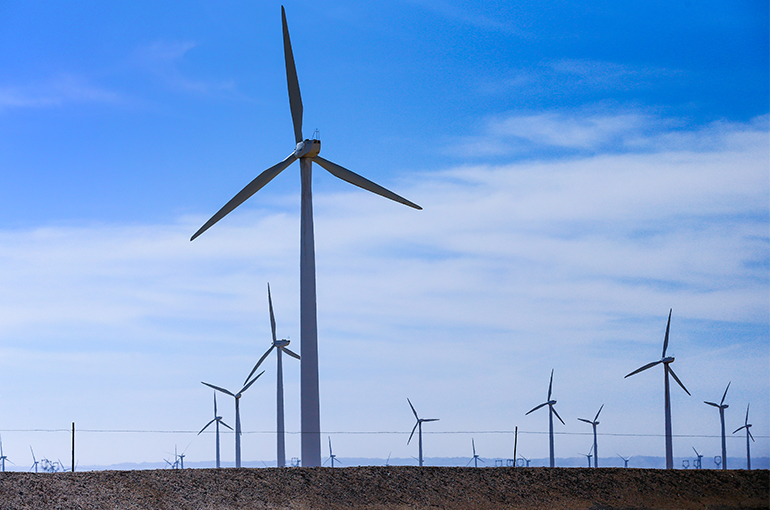 International Finance Forum Hosts Seminal Conference on Carbon-Free Energy Solutions
International Finance Forum Hosts Seminal Conference on Carbon-Free Energy Solutions(Yicai) July 26 -- The International Finance Forum (IFF), in collaboration with the Task Force on Carbon Pricing in Europe and the Paulson Institute, hosted a groundbreaking conference on July 23 focused on advancing renewable energy and nuclear technology across China, the European Union, and the United States. The conference gathered global leaders and experts to address critical challenges and opportunities in achieving sustainable energy transitions.
Under the theme ‘Fostering carbon-free sources of energy in the world: China, the EU and the US at the forefront,’ the conference featured distinguished speakers who introduced renewable energy efforts in China, Europe and the US, and nuclear power innovation in the three. Participants also had thought-provoking discussions aimed at accelerating progress towards global climate goals.
In his opening remark, IFF Executive Vice President Zhu Xian said: “At this critical time for actions against climate change, let us embrace the spirit of partnership and innovation. Let us commit ourselves to advancing sustainable energy solutions that are key to our survival. Let us dedicate ourselves to making our planet more sustainable for future generations.”
The conference underscored the critical role of collaborative efforts among China, the EU, and the US in driving innovation and policy alignment towards achieving carbon-free energy solutions.
“Nothing, in my view, is more important than to discuss among the three blocks about this major issue. We won't win the war against climate change without close collaboration between the US, China and Europe,” said Edmond Alphandéry, Chairman of the Task Force on Carbon Pricing in Europe, who acted as moderator of the conference.
Discussions highlighted the need for robust financial mechanisms, supportive regulatory frameworks, and technological advancements to overcome existing barriers in both the renewable and nuclear energy sectors.
Experts shared energy practices and renewables in Europe, the US and China, shedding light on possible solutions for problems faced by the world’s three biggest economies.
Peter Jungen, President of the European Business Angels Network, emphasized the importance of entrepreneurship and startups to inspire innovation in the energy sector.
Heymi Bahar, Senior Analyst, Renewable Energy Markets and Policy at the International Energy Agency (IEA), said renewables in China make up for more than 40% of global total, and he urged countries to increase investment and production of renewable energy.
The role of photovoltaic energy was also highlighted during the conference. Xie Tian, General Manager of Strategic Management Center, LONGi Green Energy Technology, said the cost of photovoltaic has significantly decreased and, by 2050, the cost of electricity generated by PV will be 76% less than that of coal, 73% less than that of nuclear and 15% less than that of onshore wind power.
The second part of the conference focused on nuclear power and the roles it will play in global energy transition.
Nuclear-generated power makes up 5% of the total power in China, according to Zhou Sheng, Associate Professor, Institute of Energy, Environment and Economy of Tsinghua University. By 2025, China will have 70 gigawatts of nuclear power in operation and 40 gigawatts under construction.
Christian Stoffaës, Honorary General Engineer of Mines, President of Cercle des ingénieurs-économistes, thinks it’s also important to consider public opinion when it comes to nuclear power.
In the US, the construction of nuclear power plants to meet its carbon goals has been compounded by challenges, including land use and supply chains, according to Daniel B. Poneman, Former US Deputy Secretary of Energy and former President and CEO of Centrus Energy Corp.
“If we're going to achieve these very heroic targets of building much more nuclear in a short period of time, we have to stop building nuclear power plants like airports and start building them like airplanes. We have to get away from big projects and into a production phase that can possibly meet these extraordinary climate requirements for our planet,” Poneman said.